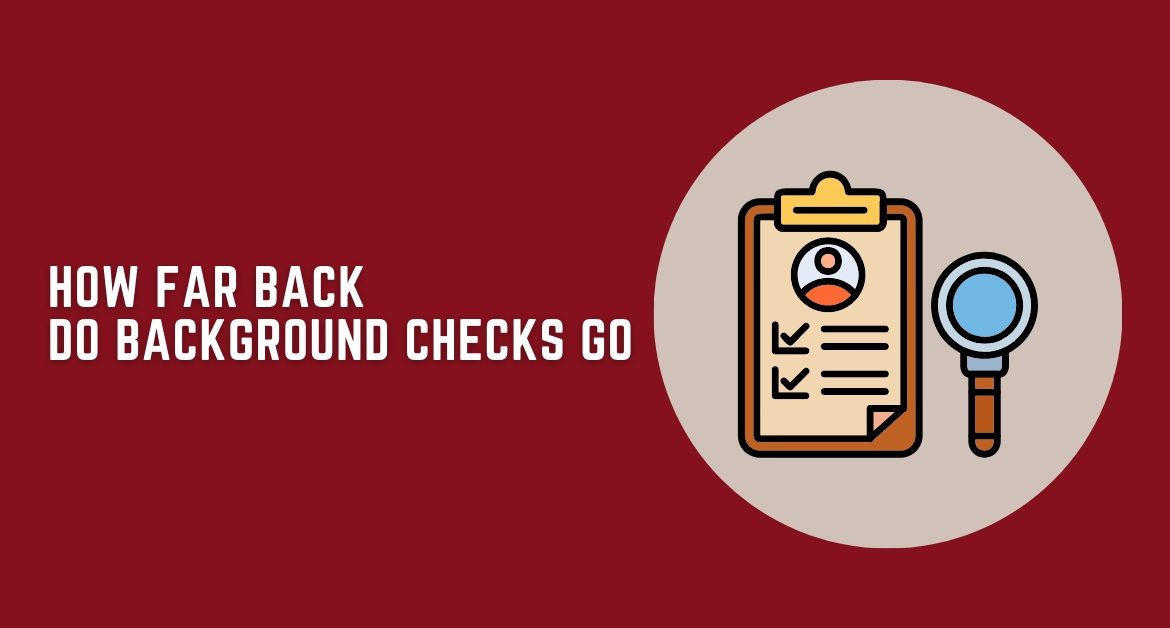If you’re applying for a job or renting a property, you may be curious to know how far back do background checks go. Background checks are a common practice used to evaluate potential staff or residents and can be crucial in choosing employment or rental.
The response to this query must be clearer-cut and can depend on various aspects, such as the type of background check done and the governing authority.
In most cases, background checks are limited to seven years as mandated by the Fair Credit Reporting Act (FCRA). However, specific states, like California, have guidelines concerning the depth of a background check.
Types of Background Checks and How Far Back They Go
Employers, landlords, and other organizations often run background checks to confirm a person’s identity, past employment, criminal records, and other necessary data. The scope and extent of the checks depend on the kind of check being done, its purpose, and any applicable laws or regulations.
Various types of background assessments typically extend back to a certain period; these are a few of the most prevalent ones.
Criminal Record
Criminal records’ availability and reporting periods may vary in different states or jurisdictions. For instance, some areas have a seven-year time frame for such records, while others may have no expiration date.
Moreover, certain records, such as those of minors or arrests that don’t lead to a conviction, may be restricted according to the respective state’s laws.
Employment History
The depth of a background check regarding an individual’s work history usually extends up to seven years, yet this can fluctuate contingent on the employer, industry, and job role.
For instance, employers could mandate an even more intensive employment background for positions that require a higher level of accountability or involve working with vulnerable groups.
Credit History
A credit report is a tool utilized in background checks that can be affected by the amount of time it covers. According to the Fair Credit Reporting Act, most information, such as bankruptcies, foreclosures, and delayed payments, can be tracked for seven years. Nevertheless, some states have regulations that may restrict the period of credit reports.
Professional Licenses
A concern exists over how many years back a background check can be carried out when applying for a professional license. Generally, it goes back around seven years, although this may change depending on the license type and the area it is requested from.


Education History
The extent to which a background check extends can affect an individual’s educational background. Generally, the most advanced degree an applicant has acquired is considered, although the particular employer or organization conducting the check may change that.
Driving Record
It’s possible to investigate an individual’s background, and this inquiry may include an inspection of their driving records. Generally, the history of a person’s motoring activity is traceable up to seven years prior, although this timeframe may fluctuate from one jurisdiction to the next.
Drug Test Results
Drug screenings are usually included in the process of verifying an individual’s background when they are applying for a job.
The timeframe of the results of these tests typically spans around three months, yet this figure can be altered based on the kind of exam being done and the area’s specific laws.
How Far Back Do Criminal Background Checks Go?
The FCRA has specific guidelines that employers must adhere to when conducting pre-employment background checks. The search duration may vary depending on the state, the applicable regulations, and the type of investigation being performed.
Generally, misdemeanors can be found on a person’s record indefinitely or for a specific span of 5, 7, or 10 years. In the case of criminal felonies, they may also remain on the individual’s history indefinitely. However, the period could be restricted to 7 or 10 years, depending on the particular state’s laws.
What States Follow the 7-Year Rule for Background Checks?
Several states observe seven years when conducting background checks, including:
- California
- Colorado
- Massachusetts
- Montana
- Maryland
- Kansas
- New Hampshire
- New York
- New Mexico
- Washington
A few states consider financial earnings and lift the 7-year limitation when an individual applies for a certain salary. For instance, Kansas and Maryland limit background screenings to 7 years, except if the salary is more than or equal to $20,000 annually.
Bottom Line
To sum up, the depth of background checks can differ depending on a few elements, including the kind of background check being performed and the authorized authority.
The past of criminal conduct, job experience, credit record, professional credentials, educational background, driving records, and drug test results can be altered by the extensiveness of a background check. As a candidate, you must be open about your past and supply precise information to guarantee a positive result.
DISCLAIMER: You may not use the non-FCRA approved services mentioned in this article or the information they provide to make decisions about consumer credit, employment, insurance, tenant screening, or any other purpose that would require FCRA compliance. These services don’t provide consumer reports and are not consumer reporting agencies. (These terms have special meanings under the Fair Credit Reporting Act, 15 USC 1681 et seq., (“FCRA”), which are incorporated herein by reference.)
The information available on our website may not be 100% accurate, complete, or up to date, so do not use it as a substitute for your own due diligence, especially if you have concerns about a person’s criminal history. The services we mention do not make any representation or warranty about the accuracy of the information available through our website or about the character or integrity of the person about whom you inquire. For more information, please review each service’s Terms of Use.

